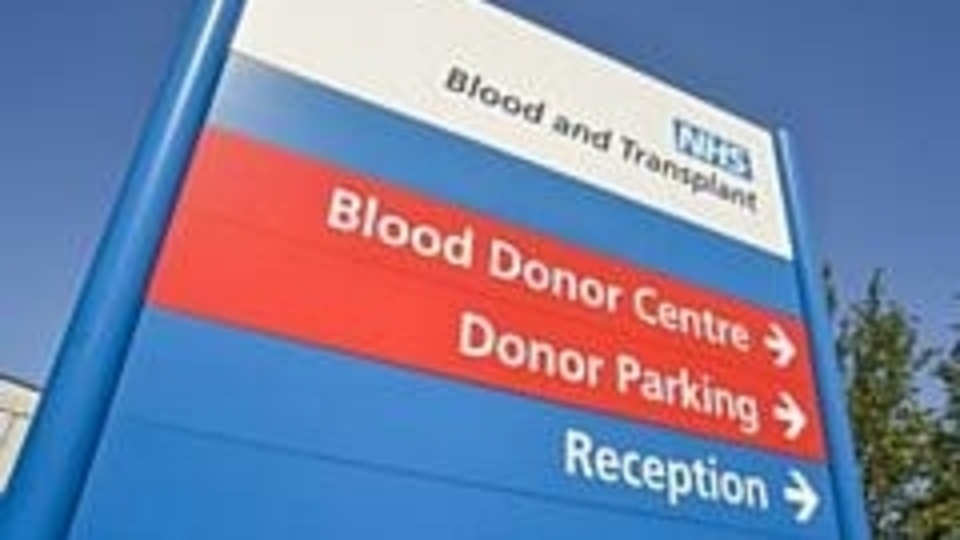Record increase in demand for blood donations to treat genetic disorder sickle cell
Date published: 06 October 2022

Hospitals in Greater Manchester currently need around 3,600 blood donations every month to meet demand
The NHS is making an urgent call for more blood donors of black heritage as new figures reveal a huge increase in Manchester hospitals asking for blood to treat sickle cell, the fastest growing genetic condition in the UK.
Hospitals in Greater Manchester currently need around 3,600 blood donations every month to meet demand.
This is around 150 percent more than five years ago.
Sickle cell is more prevalent in people of black heritage, and ethnically matched blood provides the best treatment, so more black donors are needed to meet the increasing demand.
Around 700 new black blood donors are needed in Manchester this year.
NHS Blood and Transplant is this week launching a new campaign titled ‘Not Family, But Blood’ to recruit more donors of black heritage.
Launched to coincide with Black History Month, the campaign highlights that although the black community is diverse, one unifying thing is the power to treat sickle cell and provide life changing blood donations.
Sickle cell causes red blood cells to form into sickle or crescent shapes and become stuck in blood vessels, causing agonising crisis episodes, and serious or even fatal long term complications including organ damage and strokes.
Many patients need regular blood transfusions to stay alive.
The rising demand is driven by increasing patient numbers, as people live for longer, and greater use of complete blood transfusions – known as red cell exchanges – which improve patient outcomes.
Demand for blood to treat sickle cell has risen by 52% over the past five years and is projected to continue to rise.
Currently, NHS Blood and Transplant is only able to provide matched blood for just over half of the hospital requests – other patients need to be treated with O Negative, the universal blood type.
Being treated with O Negative rather than the correct blood type is clinically safe but could mean, long term, patients are more likely to develop antibodies.
This puts them at risk of complications and makes it even harder to find blood they can receive.
There are blood donor centres in Plymouth Grove and Norfolk Street, and mobile blood donation sessions are held in all parts of the city.
Durelle Kelly, aged 31, has needed blood transfusions for sickle cell, having been treated at Manchester Royal Infirmary Hospital.
Having blood transfusions have meant Durelle is able to spend quality time with his daughter who is almost two years old.
Durelle’s message who can donate is:
“Go for it, I know some people are scared to donate but that overcoming that fear could save someone’s life, so go for it.
“Some of my friends have tried to give blood but their iron has been low. But the main thing for me is that they made an appointment and they tried.
"So please, do go along and try and give blood.
"You can’t say you haven’t tried then - and you’d really be helping someone.”
Dr Rekha Anand, NHSBT Consultant Haematologist, who works closely with black and Asian donors, said: “Matched blood is vital for sickle cell patients to reduce the risk of serious complications.
"People from the same ethnic background are more likely to have matching blood.
“There is a rise in black people donating blood, but we urgently need more black people in Manchester to become regular donors.
"Giving blood is easy, quick and safe - and you will save and improve lives.”
Become a blood donor at: www.blood.co.uk
If a local session is full, don’t worry.
It’s good news because they've had a good response.
Please book an appointment for a future date.
Your blood is still needed and you will still save lives.
Do you have a story for us? Want to tell us about something going on in and around Oldham? Let us know by emailing news@oldham-chronicle.co.uk , calling our Oldham-based newsroom on 0161 633 2121 , tweeting us @oldhamchronicle or messaging us through our Facebook page. All contact will be treated in confidence.
Most Viewed News Stories
- 1Man jailed following 'cowardly' assault on night out in Oldham
- 2800 cannabis plants seized following raid
- 3'Heart-broken' farmer's wife slams parking chaos at popular Greenfield beauty spot
- 4Mayor unveils his big taxi plan
- 5'Perverse' detective who was based in Oldham convicted of sexual offences, dismissed and banned...




